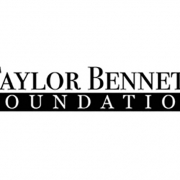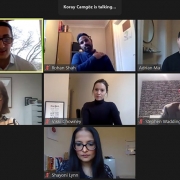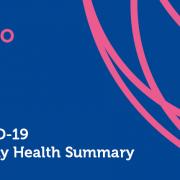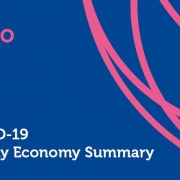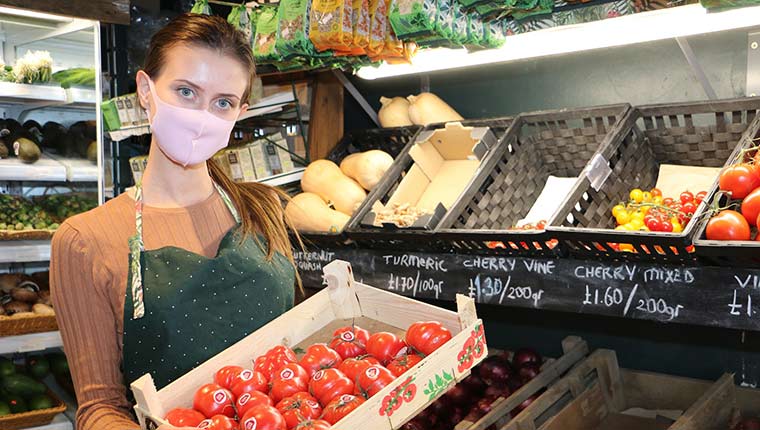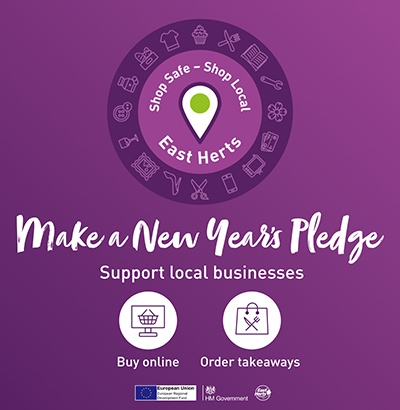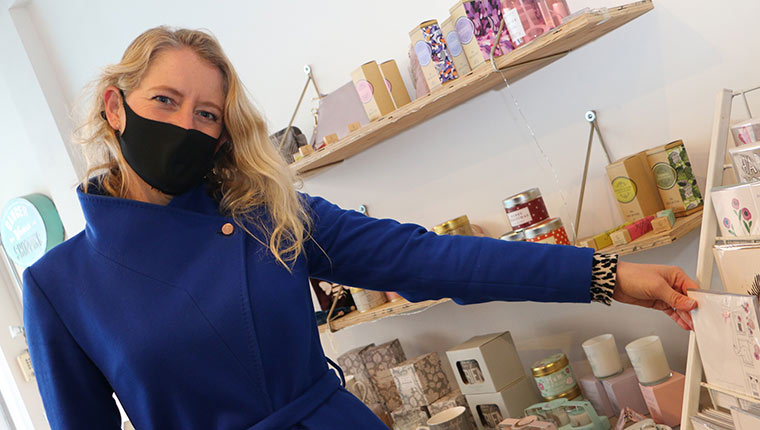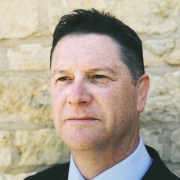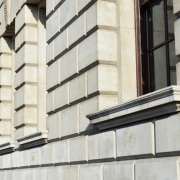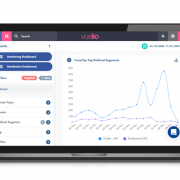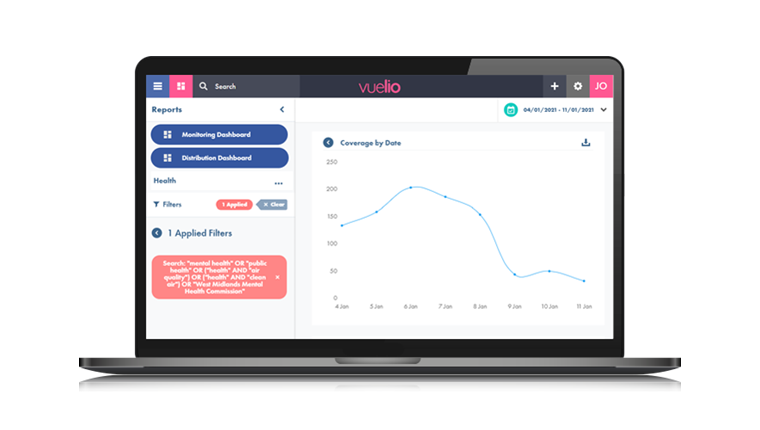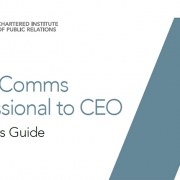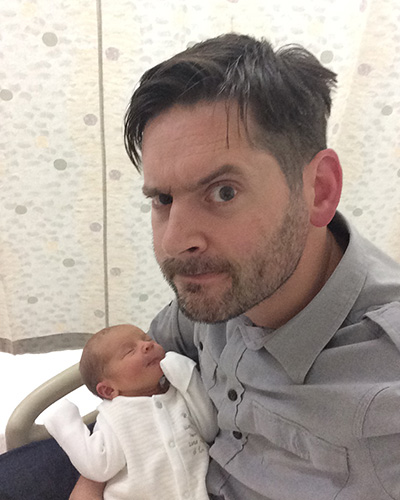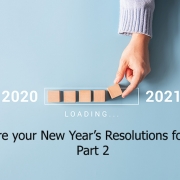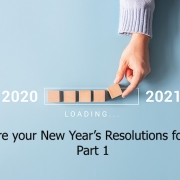‘Only by becoming solutions-led do I believe we earn the right to be heard.’
This is a guest post from CIPR’s Artificial Intelligence in PR Chair Kerry Sheehan on the changes PR professionals and communicators had to make in 2020 and how to utilise the lessons of last year for a successful 2021 in public relations and communications.
Many communicators were thrown to the forefront in 2020, re-modelling communication, marketing operations from the planned to the unplanned, and supporting business and organisations to do the same, many across services that serve millions of people in the UK and overseas, most with just hours and days to focus on the task at hand.
Throughout the year, audiences changed, consumers changed, and behaviour did at pace, meaning communicators had to be responsive to shifts and interdependencies to still ensure maximum impact.
However, during times of real darkness, facing relaying thousands of deaths, restrictions on lives, business and economic impacts to the nation on a daily and enduring basis, innovation was incorporated into communication. We weren’t shy at trying new things, particularly in data, artificial intelligence and digital, to work smarter, faster and to also aid behaviour change impact and improved outcomes.
Public sectors communicators were brave, confident, bold and creative, embracing contradiction and change throughout 2020 and this will continue to be the new norm, at accelerated pace. The challenge of 2021 will be to support organisations, businesses and brands build a better future. This is in our gift as solutions-led leaders but also inter-connected leaders. The leaders will be those who don’t just communicate but support organisations to weather the storms ahead by being solutions-led.
PR must be a sophisticated, solutions-led partner. We must capitalise on this for the benefit of our businesses, organisations and, importantly, society. Only by becoming solutions-led do I believe we earn the right to be heard.
Pre-COVID-19, we’ve already seen the emergence of increasingly educated and cynical audiences. Therefore, there will be the requirement for a deeper and ongoing level of engagement. Stakeholder expectations will be more challenging than ever before, it will continue to be merciless. But we must cut through the noise for impact, creating more allies and advocates from key stakeholders.
Seeking advantage, which requires boldness in the face of competition, be it for audience attention or the opposition, will be an ongoing challenge.
Business will need to influence and engage political decisions makers on every level, far more than ever before. Throughout 2020, we saw individuals and groups not usually associated with politics get involved, taking up issues like never before, getting involved in groups that meet or through social media activity. The nature of influence on political and business leaders has changed. Top-down models are no more.
Real data and analytical skills will continue to be a challenge for many. We need PR innovators, well versed in new and emerging technologies including real data, automation and artificial intelligence, driving organisations and businesses forwards.
We need to get comfortable with the uncomfortable. Reputations that differentiate, that stand for something and build relevance and preference will be the ones who lead. A mind-set of ‘what if’ and ‘what next’ is not just for next risk but for the next innovation opportunity.
A focus area must be to listen, analyse, plan, act – shifting to being anticipatory. Business models will continue to adapt and innovate; this is the new normal.
Data and AI
The big opportunity is data, new technologies, digital innovation, automation and AI. I’ve upskilled to build algorithms, machine learning processes, be equipped to confidently advise and guide on business opportunities in these areas but also the business and people considerations, and become au fait with real data and the challenges it brings us in terms of bias and ethics. This is a huge area of opportunity for us. Ethics will be a growing USP for us. It’s a complex and difficult area. But many still haven’t upskilled into these areas iI. They should to remain relevant or risk getting left behind by those who have upskilled and the new entrants, many of whom are now coming prepared.
Innovation
Innovation will come first. Test, make, sometimes break, learn, but innovate continually. If you cannot show you are continually looking to try new things, incorporating true innovation, I don’t think practitioners are showing up.
Organisations, businesses and brands will require nimble, fast and creative ideas in a world of flux, responding in hours not days. Nothing beats co-creation, strongly anchored in expertise of public relations, marketing, data, analytics, creativity, business and commercial which will win the day.
Ethics
This is our opportunity to lead, new reputation risks will come as society focusses on razor-like ethics and behaviour of organisations, as people behaviours continue to change at accelerated pace.
Risk management
Crisis management is no longer just good enough. Communicators have to be able to manage risk and provide risk advice and guidance, reducing organisational risk exposure.
Leadership
We need the right kind of leadership. There seems to be gaps in transformational, collaborative leadership from people who are brave, bold and innovative, and who are not afraid to take on who are people smarter than themselves to ensure impactful delivery.
ESG
We must support to tackle poverty, inequality and diversity and, importantly, inclusion as well as aiding carbon reductions and making sure organisations are climate-friendly. Public scrutiny in these areas will cause ill-equipped organisations not leading with purpose to fail.
Fighting fake news
We must show up to defend the truth. Disinformation and fake news pose one of the biggest challenges to the truth and social cohesion we have seen in decades. We are fighting an infodemic war, despite the many algorithms taking down insurmountable amounts every week.
The big challenge of 2021 is for communicators to become guardians of the truth, putting ethics at the forefront. That is through continuing to build and maintain trust with our stakeholders, as part of our licence to operate, and providing more direct evidence-led communication. It also means issuing full clarifications and rebuttals, as appropriate, through being switched on communicators conducting effective horizon scanning.
We are also faced with the weaponisation of artificial intelligence, deploying and aiding fake content, be it audio, video, images, fake news and so on. We must always be switched on to this. It is a threat of our times.
For more on AI in PR, read about Kerry Sheehan’s work at CIPR here. For more trends to be prepared for this year, check out our round-up of predictions from industry thought leaders.
Follow Kerry on Twitter @PRKezza.



